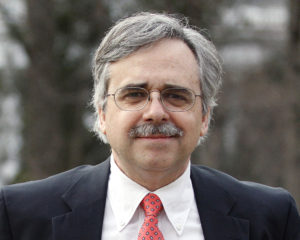
Professor of Political Science Stephen Farnsworth
Professor of Political Science Stephen Farnsworth has appeared in several recent media mentions, including:
“Even offices that are billed as nonpartisan like school boards are becoming more partisan across the commonwealth,” said Stephen Farnsworth, a political scientist at the University of Mary Washington. “What Fairfax is doing is recognizing the partisan reality of school board races.” Read more.
Dels. March and Williams have already faced each other in court. Now they face off in a primary (Cardinal News)
“The key issue in this contest is who can present themselves as the most compelling ideological reflection of this conservative district,” said Stephen Farnsworth, a political scientist at the University of Mary Washington. “While both candidates are conservative, the primary will be shaped by the extent to which being a combative Republican is better than being a productive Republican.” Read more.
Local GOP candidate for state delegate says opponent’s mailers falsely imply Youngkin’s endorsement (Prince Williams Times)
Quill’s thinking makes sense according to Stephen Farnsworth, a political science professor and director of the University of Mary Washington Center for Leadership and Media Studies, who said primary voters are looking for ways to differentiate candidates from the same party. “Impressions matter a lot in primary campaigns because voters don’t have that Democratic versus Republican partisan cue,” Farnsworth said, adding: “What candidates often do is talk about how they are like another (elected official), implying that there may be an endorsement — without actually saying that there is an endorsement – when there is not.” Read more.